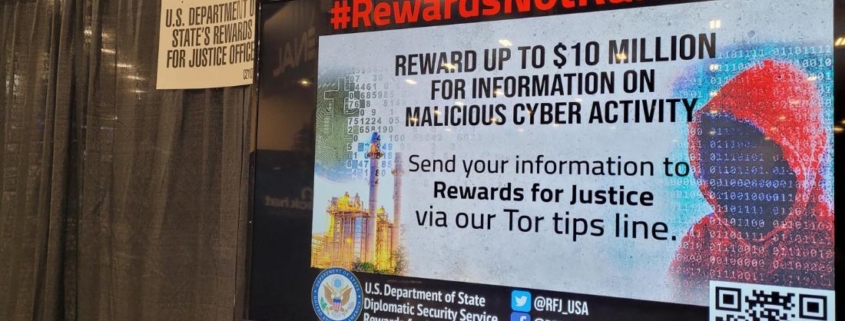State Department tries to ‘push the envelope’ with Dark Web informants, cryptocurrency rewards in the millions
The Vegas push was made to such a highly targeted cyber audience because for the first time in the Reward for Justice program’s almost four decades, informants could elect to receive payments in cryptocurrency and reach out to the US government with sensitive information through a secure portal on the Dark Web. It came after the State Department quietly made the announcement last month amid a flurry of other actions taken by the Biden administration to shore up the country’s cybersecurity.
“Within our program there’s a tremendous amount of enthusiasm because we’re really pushing the envelope every chance we get to try and reach audiences, sources, people who may have information that helps improve our national security,” a State Department official said in an interview, the first since the announcement was made. “It’s been edgy for some government agencies, perhaps, but we’re going to keep pushing forward in many different ways.”
“Something on the Dark Web that allows total anonymity and an initial level of security is probably more appropriate for those folks,” said a second official from the State Department, which declined to allow the officials’ comments to be on the record. “So just finding people where they are and reaching them with the technology on which they are most comfortable, I think, is the name of the game for Rewards for Justice.”
The new cryptocurrency reward offer, from a program typically associated with rewards for terrorists, says that up to $10 million can be paid for the identification or location of a state-backed hacker attacking US government systems and critical infrastructure like water, power or transportation. (The highest reward RFJ offers is $25 million for the head of Al Qaeda, Ayman al-Zawahiri, who may be dead.)
The spate of recent cyberattacks and the Biden administration’s vocal response to them were not what drove the new cryptocurrency reward, the State Department said. Instead, the administration’s growing focus on the country’s cybersecurity was fortuitous timing for RFJ.
“We’ve been working on this quite a while and it coincided at a very good time that we managed to get this rolled out as critical infrastructure and ransomware were at the…


